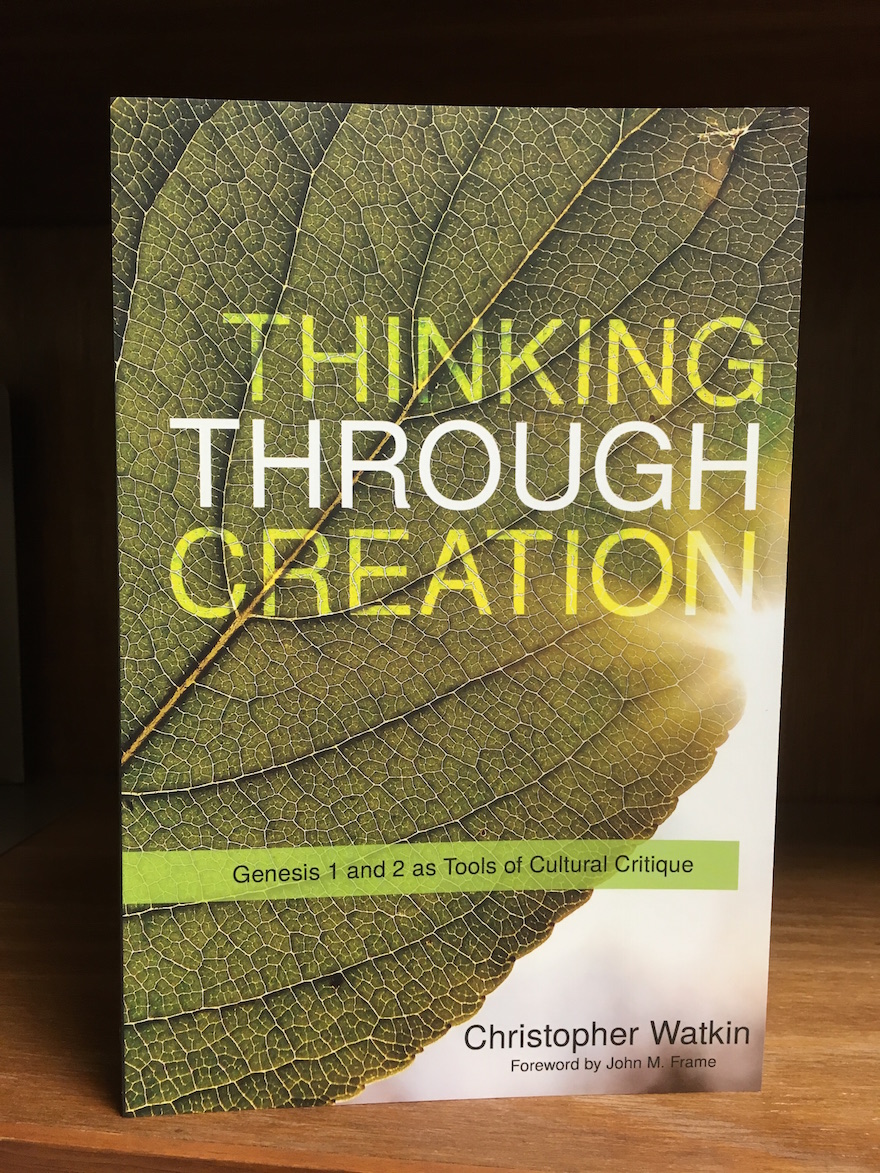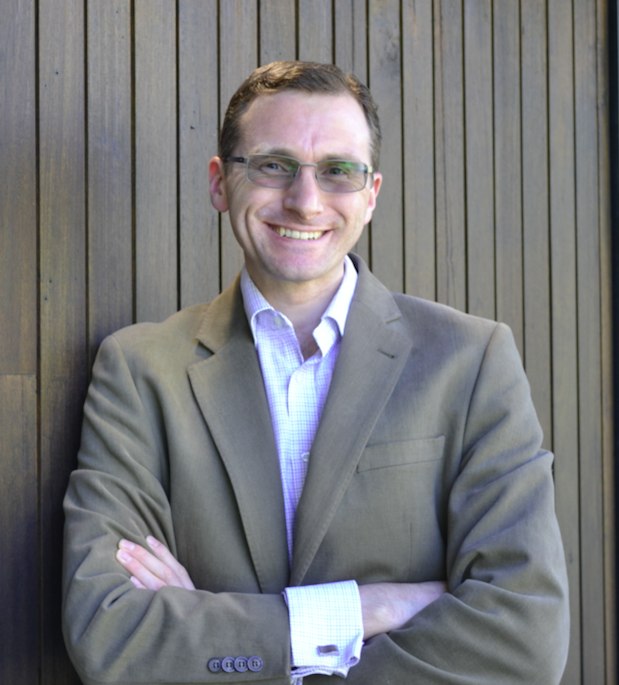This week’s author interview is with Christopher Watkin. He is the author of Thinking through Creation: Genesis 1 and 2 as Tools of Cultural Critique (releasing 10/31).
- Question #1—When did you first want to write this book?
When I couldn’t find anything like it in the bookstore.
Since my undergraduate days I have wanted to read a book that brings biblical theology into careful dialogue with key thinkers and ideas in Western thought and culture. I have wanted to explore how the Bible’s storyline could be used as a tool of cultural critique and as a prism through which to cast a constructive vision of society and intellectual life. Over the years I have read some books that try to re-write the Bible’s storyline in ways that made it fit, in a suspiciously cozy way, within the assumptions of twenty-first century Western culture, and others that use the Bible as a weapon to attack that culture, but very little by way of genuine dialogue between biblical theology and culture at the level of assumptions and overarching themes.
- Question #2—What inspired you to write this book, about this topic?
Thinking Through Creation is the happy collision of two passions of mine: understanding and communicating the sweep of the biblical storyline to Christians, and understanding and teaching aspects of modern Western culture to university students. I have long been convinced that bringing a Bible overview into direct dialogue with specific Western thinkers, values and ideas can provoke both Christians and those of no religious faith to deeper engagement with the Bible and with the cultural world around and within us. I am also convinced that, more specifically, such an encounter can be of great use to Christian students and scholars, or at least it would have been just the sort of thing I was looking for all those years ago as a Christian undergraduate in the Arts faculty of a secular university. So in this book I try to host a dialogue between, on the one hand, the doctrine of the Trinity and the first two chapters of Genesis and, on the other, key thinkers and ideas in modern Western culture. In future volumes I hope to be able to work my way through the rest of the Bible, though not always at the rate of two biblical chapters per book!
- Question #3—Do you have a specific spot where you enjoy writing most?
No: office, home and café are all good. I’ve even been known to do a bit of writing in the car, and I carry a Dictaphone round to capture thoughts I have on the go. Give me any old seat, a laptop and preferably an espresso, and I’m good to go. I sometimes prefer a café setting for sketching out the structure of books or reordering chapters, I suppose because the low level distraction tempers the intensity of the task a little. It’s funny how places then become associated with specific books (British Museum café: Foucault: Historian of the Present; Carla’s Conditorie, Achter de Dom, Utrecht: Thinking Through Creation). I love those associations and the way they knit together to form a personal cultural geography.
- Question #4—What book are you reading now?
I have a few reading projects on the go at the moment. I’m systematically working my way through everything written by the contemporary French philosopher Michel Serres, on whom I’m trying to write a book. I’ve got my work cut out: Serres authored north of fifty volumes, made three TV series and has been interviewed countless times in French newspapers and magazines. Another readerly plate I’m attempting to keep spinning is a project looking at the ways in which contemporary Western thought and society imitates Christian patterns of thinking, to what extent that amounts to an indebtedness to Christianity, and what the implications of any such indebtedness might be. I think it’s a much more complex question than both Christian and secular writers usually allow. In relation to that project I’m half way through Jeremy Waldron’s One Another’s Equals, a very thoughtful book on the foundations Western equality, and before that I finished Simon Critchley’s Faith of the Faithless, the first two volumes of James K. A. Smith’s Cultural Liturgies series, and a volume of essays entitled Radical Secularization? Finally, I recently set myself the challenge of listening to the entire back catalogue of Francis Schaeffer’s lectures in the l’Abri ideas library, but I have to report that despite the very engaging content my progress thus far can best be described as plodding.
- Question #5—What do you hope this book will achieve?
I would love Christians to see how the Bible’s storyline provides a rich trove of sophisticated patterns of thinking and living that can speak constructively into both the hot-button issues of contemporary culture and the perennial questions of Western thought.
I hope that the book will help Christians and other interested parties to see that the Trinity and the opening chapters of Genesis, far from being an embarrassment to thoughtful people, are crucial to shaping some of the Christian’s most incisive and fresh-thinking contributions to contemporary debates in thought and culture.
I would love the book to help people see that biblical patterns of thinking often cut across and disrupt the choices, divisions and categories that can seem self-evident in our culture, like facts/values or unity/diversity.
I would love readers to take some of the patterns I explore in this book, like diagonalization and the n-shaped and u-shaped dynamics, and set them to work in areas far beyond my own area of expertise. I’m grateful if readers find the book interesting, but my real hope is for it to be useful: a toolbox rather than a pretty picture. I’d like nothing more than to be found guilty of “incitement to biblical thinking”.
Finally I hope that, one day, some Christian undergraduate in a secular university will wander into a bookstore, pick up Thinking Through Creation, and find it to be the book they were looking for.
How can readers discover more about you and your work?
- Website: I co-founded and contribute to audialterampartem.com, a site exploring the nexus of modern French thought and evangelical/Reformed theology.
- Blog: I also blog about French philosophy and the academic life at christopherwatkin.com
- Twitter: @DrChrisWatkin, and @alterampartem



Comments